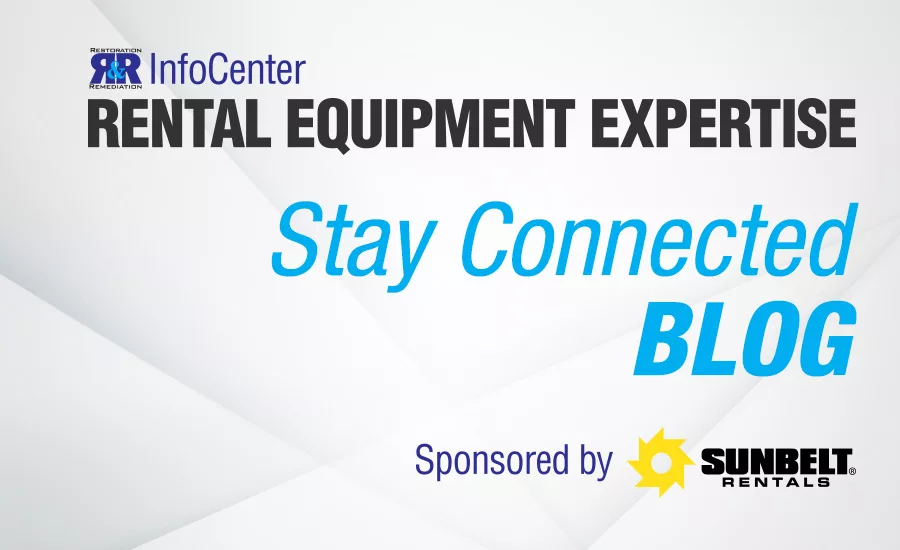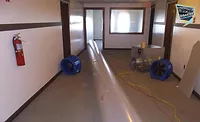Large Loss Restoration Equipment: Rent vs. Buy

Whether you’re just thinking about starting a restoration company, just landed a major commercial water loss and don’t have all the equipment you need, or wanting to grow or expand, equipment is a vital piece of the puzzle. Renting equipment is often a great way to begin to scale your business, without making a large capital investment up front. Plus, the rental costs are typically covered by a customer’s insurance policy.
It’s understandable that many business owners would prefer to buy equipment outright, but sometimes that just isn’t possible. Purchasing equipment like large desiccants or generators requires a much bigger investment than a few air movers or ozone machines. That’s where companies like Sunbelt Rentals come in.
Here are some great reasons to consider renting equipment for your next large loss project:
- Reliability
A quick call into your local Sunbelt (or other rental company) rep can get you the equipment you need, when you need it, and you can return it whenever you’re finished with the job. No waiting for shipments or orders to be filled. In most cases, the equipment is delivered right to your job site, and can be picked up there again by the rental company when the job is done.
Plus, you can get the support you need. It’s not up to you to maintain the equipment you rent, and if you have questions, your rep should be able to easily answer those for you. Rental equipment experts know a lot about the specialized, and general, equipment and tools you use.
- Speed
If you just landed a huge commercial job, you don’t have several days to wait to get equipment. An account with a rental company can have the equipment at your job site on the same day – sometimes within a few hours. Plus, since it’s delivered, you don’t need to pull team members off the job to run to get equipment.
- Options
Rental companies that have sectors specializing in disaster restoration should have everything you need for water damage, fire damage, and other jobs. Renting is a great way to get your hands on equipment your company wouldn’t normally need, and also test out some newer items on the market that you might not be ready to purchase just yet.
Looking for a reprint of this article?
From high-res PDFs to custom plaques, order your copy today!







